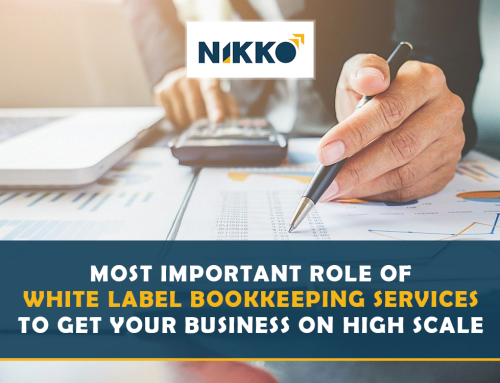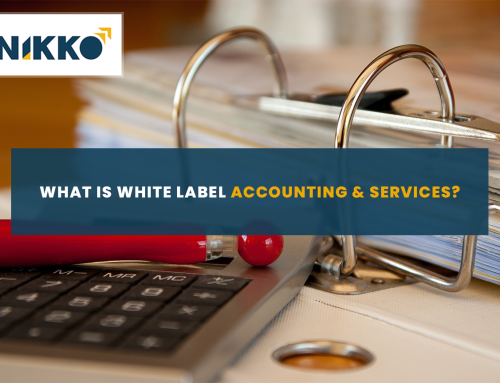The explosive growth in demand for accounting service outsourcing in recent years is one of the most unexpected changes in the industry. The growing use of this method is changing how companies handle their finances. By outsourcing accounting services, companies can reduce expenses and focus more of their resources on key projects.
Therefore, it is essential in today’s corporate environment to understand the driving forces behind outsourcing accounting services, regardless of your size—small startup, rapidly growing business, or well-established conglomerate. Let’s examine the factors contributing to this trend’s rise in popularity and how it might benefit your company.
The Rise of Outsourcing Accounting Services in Businesses
Since the earliest phases of industrialization and specialization, outsourcing has been considered. Promoting cooperation between businesses located in various locations through new modes of transportation and communication helped.
Traditional outsourcing services, like IT support and customer service, have grown as firms change and develop. These days, many services can be outsourced, such as marketing, legal services, software development, and accounting in particular.
The rising demand for finance and accounting services is an important development in the outsourcing business. Many people believe that internal financial management costs companies money and effort.
Numerous tasks fall under the broad accounting category, such as bookkeeping, tax preparation, financial analysis, payroll processing, etc. A corporation transfers these responsibilities to a third party when it outsources its accounting.
The Key Reasons for Outsourcing Accounting Services
The advantages of bookkeeping outsourcing services to a third-party company are too substantial to be written off as a fleeting trend.
1. Cost Savings
The cost of keeping an internal accounting staff could be high. In addition to paying for the wages of qualified accountants, businesses often need to pay for hardware and accounting software.
However, businesses can substitute a fixed budget with one that adjusts to changing demands using an outsourced service. They only pay for the services they use, so it makes little sense to maintain a sizable workforce or expensive infrastructure.
2. Access to Expertise
Due to their intricacy, modern accounting procedures need the advice of seasoned professionals. Outsourcing companies make use of accounting teams that are knowledgeable about current tax laws and accounting standards.
Because outsourcing gives businesses access to professionals in areas like financial reporting, tax compliance, and financial planning, it may be advantageous for them.
3. Focus on Core Competencies
Seldom is accounting regarded as one of a business’s strong suits. It is a must, but it won’t make a big difference in the company’s competitiveness. Using a third-party bookkeeping service can free up internal resources so that they can be used to grow the company and boost sales.
Businesses that play to their strengths may discover chances for growth and revitalization.
4. Scalability and Availability
Adjusting the amount of work as needed is one of the greatest advantages of accounting outsourcing solutions. Hiring more staff may be essential in periods of high activity, such as tax season, or when a business is growing quickly.
Because their partners in outsourcing are so flexible, businesses never have to worry about receiving too little or too much support.
5. Enhanced Data Security
Like any other business, financial institutions must take data security very seriously. Reputable outsourcing companies typically invest more in data security than do in-house teams.
Access to sensitive client data is restricted to authorized personnel only and encrypted during transmission and storage. Companies typically opt for bookkeeping outsourcing services to protect their financial information’s confidentiality.
Types of Accounting Services Outsourced
Bookkeeping
Maintaining accurate financial records is vital to the seamless functioning of any business. All cash flow, including payables and receivables, must be tracked and reported.
Hiring a professional bookkeeper has several benefits, one of which is that they will maintain accurate and error-free financial records. Outsourced bookkeepers’ ongoing attention to the tax code reduces the possibility of compliance errors.
Tax Preparation and Compliance
Preparing taxes is computing and filing an individual’s tax returns. Ensure you follow the tax code to avoid fines and increase your returns. Keeping up with the frequent modifications made to tax laws can be difficult.
You can be secure knowing the professionals handling your tax preparation are up-to-date on all the rules. Reducing taxes and utilizing tax advantages can result in financial savings for businesses.
Financial Analysis and Reporting
To better understand a company’s operations, reporters and analysts must review its financial data. Balance sheets and income statements are among the financial reports produced by this procedure.
By facilitating in-depth financial analysis, outsourcing financial research and reporting can assist companies in making more judgments.
Coding for Accounting
Payroll processing encompasses the management of employee benefits, taxes, and additional payments deducted from their paycheck. Accuracy and timeliness are essential in this position. Payroll processing outsourcing offers numerous advantages, including precise employee compensation and expertly calculated deductions that comply with tax laws.
Audit Support
To satisfy both internal and external auditors, businesses often use a service known as “audit support.” Outsourced audit support staff have extensive knowledge of auditing standards and practices. With outsourcing, the impact of an audit on day-to-day operations is minimized.
Future Trends in Accounting Outsourcing Solutions
Using cutting-edge automation and artificial intelligence is one of the most significant breakthroughs in outsourced accounting. Machine learning algorithms are quickly being used in accounting software to automate tasks like data entry and transaction classification. As output rises, error rates decrease.
In the area of data security, outsourcing companies may use block chain technology. Access to encrypted file-sharing platforms, video conferencing, and virtual teams will all be easier to reach, letting businesses communicate with their outsourced partners.
Conclusion
The demand for accounting services outsourcing is growing; this is not simply a trend. Businesses of all sizes and across all industries greatly need external accounting services. Many enterprises, such as manufacturers, internet shops, startups, and healthcare providers, have used outsourced accounting services. The several fields in which the approach has been effectively used attest to its adaptability and value. The search for a trustworthy partner is essential when attempting to outsource accounting services.






Leave A Comment